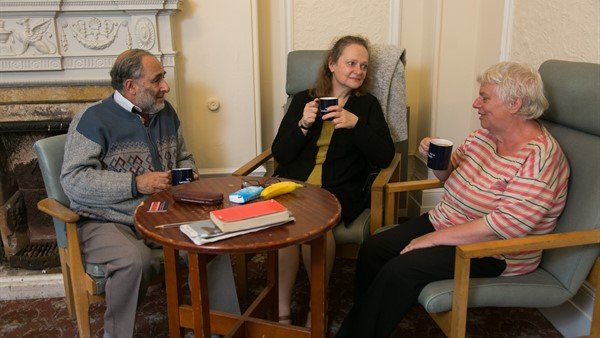Download Hourglass' advice on financial abuse in isolation
There will be a significant increased risk of abuse and neglect to the nation’s older population as widespread lockdown and self-isolation takes effect amid the UK’s efforts to tackle the deadly covid-19 pandemic. Even under the best of circumstances, we know that more than a million older people experience abuse or neglect in the UK every year. The nationwide lockdown measures will exacerbate tensions and societal unease, and will risk creating a “pressure cooker” environment where abuse and neglect become more likely.
Vulnerable people can be at a higher risk of exploitation & abuse when they are lonely & isolated. The wonderful community spirit of helping older neighbours can be seen across the UK: shopping deliveries, prescriptions collected, and phone calls to older people offering a break from the isolation and a friendly voice. Sadly, we know that unscrupulous individuals will take advantage of people who are frightened and in need of support. We know this is already happening.
What is Financial Abuse?
Financial abuse is stealing or defrauding someone of money and/or possessions. It is always a crime but is not always prosecuted. Sometimes the issue is straightforward; for example, a care worker stealing from an older person's purse or a financial scam. At other times it is more difficult to address. This is because very often the perpetrator can be a friend, family member or spouse, care worker, or because age prejudice leads others to assume that the older person is to blame. Abusers often exploit people who are isolated or have found themselves detached from their community or friends and family. Some abusers will try to isolate their victim, making them feel lonely, in order to increase their dependence on them.
Below are some examples of risk factors, indicators of financial abuse, barriers to reporting and measure that can be taken to support older people and prevent financial abuse.
Risk factors:
-
Lack of familiarity with financial matters
-
Reluctance to discuss financial matters
-
Social isolation/loneliness
-
Unemployment in family members
-
Dependency on others to manage care or finances
-
Recent loss / bereavement
-
Disability
-
Lack of or fluctuating capacity
Indicators of Financial Abuse
-
Signatures on official documents, for example cheques, that do not resemble the older person's own
-
Sudden changes in bank accounts, including unexplained withdrawals of large sums of money
-
The unexplained inclusion of additional names on an older person's bank account
-
Sudden and unexplained transfers of assets to a family member or someone outside the family
-
Numerous unpaid bills
-
Unusual concern from any individual that an excessive amount of money is being expended on the care of an older person
-
The abrupt changes to, or the sudden establishment of, wills
-
The sudden appearance of previously uninvolved relatives claiming rights to an older person’s affairs or possessions.
Barriers to reporting:
-
Shame and embarrassment
-
Unwillingness to criminalise family members
-
Prefer to live with the abuser than alone
-
Fear of losing relationships with other family members e.g. grandchildren
-
Nothing will be done, not feeling worth the time
-
Generational attitude- ‘it’s just a domestic’
-
Lack of knowledge about where and how to report
-
Fear of reprisals
-
Concerns about unwanted intervention
-
Worried about being believed
-
Previous negative response from agencies
Supporting an older person at risk of financial abuse:
Advice to give to older people:
-
If other people do your shopping, keep an eye on receipts and what is spent
-
Don’t allow anyone into your home or take money for shopping unless you can confirm their identity or you have made an appointment for them to visit
-
Be aware of phone and internet scams which try to get you to disclose your bank details
-
Find out your bank’s security procedures regarding contacting customers
-
Check your bank statements regularly
-
Don’t ever share your PIN number
-
Keep important documents and valuables safe and out of sight
-
Don’t lend anyone money unless you are sure you can afford not to have it returned
-
Think about who you might want to make welfare decisions on your behalf if you lose capacity, and consider giving someone you trust Power of Attorney.
 Shop Now
Shop Now


